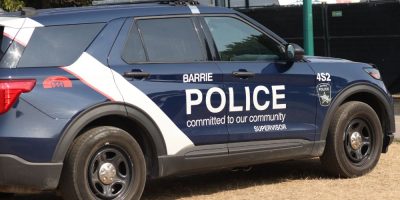News release - Simcoe Muskoka District Health Unit (SMDHU)
The SMDHU investigation announced on Oct. 7 into a Legionnaires’ disease outbreak in Orillia is now concluded and the outbreak is declared over.
Following the health unit’s extensive investigation of 27 known cooling towers at 17 sites in Orillia, 10 of these sites were tested. It was determined that a strain of Legionella found in the Orillia Rotary Place cooling tower was a genetic match with one sputum sample of a case of Legionnaires’ disease among the 35 cases. Testing for the source of the other 34 cases could not be done. In addition, testing could not be done for seven of the sites as they had been shut down for the season before testing could be completed. The cooling towers in operation in Orillia that have been identified by the health unit (both public and private) are being closely monitored.
"We are confident that with the testing, monitoring and completion of any required cleaning and disinfection of the cooling towers that continue to operate in Orillia at this time there is no further risk of transmission associated with this outbreak. As such, the health unit is declaring the conclusion of this outbreak,” said Dr. Charles Gardner, SMDHU medical officer of health.
Testing for Legionella bacteria has been completed every few days since the Rotary Place cooling tower resumed operations following the repair of the heat exchanger at the end of October. The tests completed on Nov. 1 and 4 provided no detection of Legionella bacteria; however, testing pursuant to the City’s rigorous testing protocols detected low levels of Legionella bacteria within the cooling tower on Nov. 7. While the levels were not high enough to be an active risk to the community at this time, the City of Orillia determined that the safest option was to shut down the cooling tower until a root cause can be determined.
“The health and safety of our community is absolutely paramount. The most recent testing identified low levels of Legionella and keeping the cooling tower at Rotary Place operational is not a risk that we are willing to take,” said Mayor Steve Clarke.
“The City has done everything we can operationally at this time. There are no legislated standards regarding the operation of cooling towers. The City will continue to rely on the advice and recommendations of industry experts including a specialized engineering firm to analyze the system for a plan of action moving forward.”
Legionella bacteria are commonly found in natural freshwater environments; however, their presence can become a health concern in water systems, such as cooling towers. People can contract Legionnaires’ disease when they inhale aerosolized water droplets containing the bacteria. Fortunately, most people exposed to the bacteria do not become ill. However, people over 50 years of age, heavy drinkers, those whose immune system is impaired due to other medical conditions, smokers and people who have a chronic lung disease, such as emphysema are at greater risk of developing Legionnaires’ disease. Legionnaires’ disease cannot be contracted by drinking water and it cannot be passed from person to person.
More information on Legionnaire’s disease can be found on the health unit’s website or by calling Health Connection at 705-721-7520 or 1-877-721-7520, weekdays from 8:30 a.m. to 4:30 p.m.
Updates regarding the status of Rotary Place will be provided directly to user groups and posted on the City’s social media channels and the City’s website as they become available.
Banner image - file photo - Barrie 360





